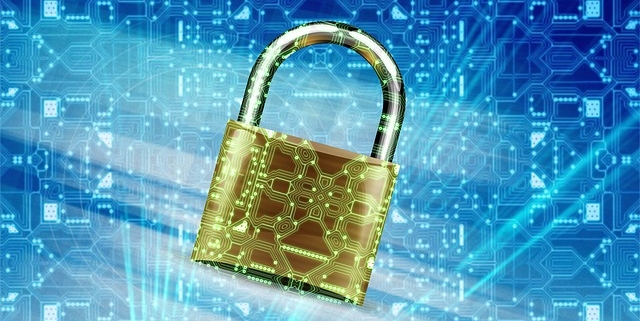5 Network Security Tips for Small Businesses
Why is technology so important in businesses? Technology is used not only to perform daily functions, but also to stay connected, protect financial data, confidential decision making, or other private information that generates relative advantages to competitors. Technology helps computers make businesses quicker and more efficient. However, with these increased accessibilities comes increased risk. Computers aren’t going anywhere, but neither are the vulnerabilities that computers pose. In today’s modern era, most businesses are subject to security threats and damage – especially small to medium-sized businesses.
Did you know that 40% of cyber-attacks targeting businesses have fewer than 500 employees? Now, this doesn’t mean that no business is immune to cyber-attacks, but small to medium-sized businesses are especially exposed. The question remains: why do security breaches or any incident that results in unauthorized access keep happening too small to medium-sized businesses? There are countless explanations, but a common one is that small and medium-sized business often focus on financial gain over security. So what can your business do to protect itself against online attacks?
Small businesses can improve their online safety practices starting with these 5 steps:
- Educate employees
- Teach your employees basic best practices; such as if an email, social network post, or text message looks skeptical, even if they know the source, it is best to just delete it. Also, since many security attacks occur because an employee accidentally clicked on a malicious website or link, training your employees is a smart move.
- Encourage employees to change their passwords at least every 90 days and practice good password management. Recommend that employees use strong mix of characters – and of course, never use the same password again and again, never share their passwords, and don’t write passwords on sticky notes!
- Have a firewall
- The purpose of a firewall is to block unauthorized access while permitting outward communication. Think of having a firewall as a high-tech gatekeeper. It’s protecting your computer from being hacked by examining the data that passes in or out of your company network to ensure that all traffic is authentic. Without a firewall – it’s like going for a war without a single piece of protective gear.
- Keep software updated
- “Updated software is available for this computer. Do you want to install now?” – sound familiar? It is very clear, that the very important pieces of software on a desktop is going to be the operating system. In order for that operating system to get the latest and greatest features or security settings – it’s going to need to be updated! With data security becoming more complex – and more important every day, reliance on outdated software only increases the risk that sensitive information can be leaked or hacked. Most modern software and apps update automatically, but it is important you agree to install them when prompted. Common software to keep updated are:
- Operating systems, such as Mac OS, iOS, Android
- Antivirus and security software
- Browsers (Internet Explorer, Firefox, Chrome)
- Web plugins, for example, Adobe Flash, Reader, Skype, Apple Quicktime, iTunes, Java, ActiveX
- “Updated software is available for this computer. Do you want to install now?” – sound familiar? It is very clear, that the very important pieces of software on a desktop is going to be the operating system. In order for that operating system to get the latest and greatest features or security settings – it’s going to need to be updated! With data security becoming more complex – and more important every day, reliance on outdated software only increases the risk that sensitive information can be leaked or hacked. Most modern software and apps update automatically, but it is important you agree to install them when prompted. Common software to keep updated are:
- Safeguard your Wi-Fi
- No more Mr. Wi-Fi! Wi-Fi is a hackers favorite tool to get into your network without setting foot inside your building. Once you have created strong passwords, share them only with those who require access. Consider encrypting and hiding networks for added security and give friendly reminders to employees about not sharing passwords. Here are a few helpful ways to secure your business Wi-Fi:
- Select unique SSID name and password
- Physically secure your router in a safe location
- Disable remote login for your Wi-Fi network
- No more Mr. Wi-Fi! Wi-Fi is a hackers favorite tool to get into your network without setting foot inside your building. Once you have created strong passwords, share them only with those who require access. Consider encrypting and hiding networks for added security and give friendly reminders to employees about not sharing passwords. Here are a few helpful ways to secure your business Wi-Fi:
- Protect your data (backups)
- To ensure that critical data is not lost in the event of a cyber-attack, businesses should establish a schedule to back up their data. Critical data may include word processing documents, electronic spreadsheets, databases, financial files, human resources files, and accounts and receivables. It is recommended to backup data automatically or at least once a week if possible. We recommend having both a local backup and a cloud-based backup such as Carbonite.
The Tech Zen offers a range of services to solve your technology troubles. Each of our technicians has over 10 years of experience in servicing both PC and Apple environments. We can address your internet security concerns, provide data backup solutions, and offer ongoing support for your office to provide peace of mind. Contact us to find out how we can help.



